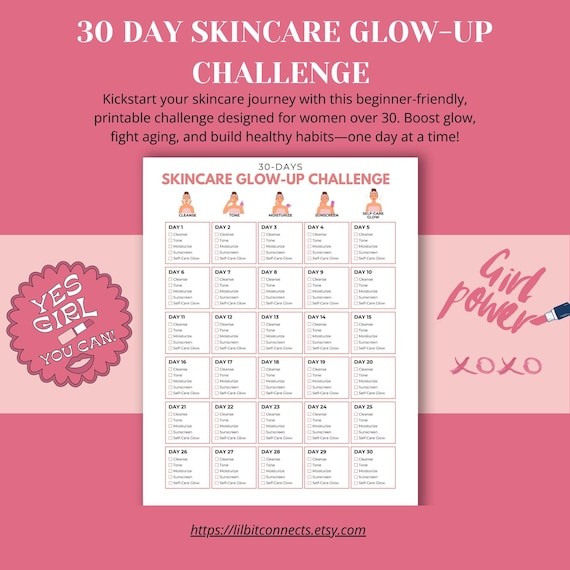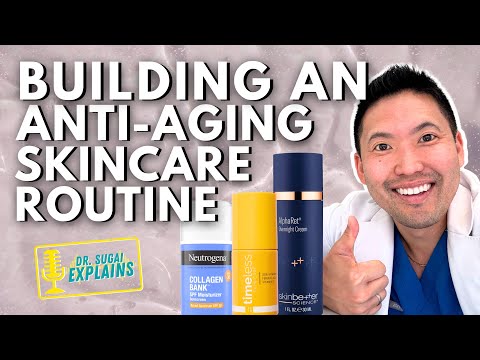Aging is a natural part of life, but your skin doesn’t have to show it. You’ve probably noticed those fine lines and wrinkles sneaking up on you, and perhaps you’re wondering what you can do to keep your skin looking vibrant and youthful.
You’re not alone in this quest. The good news? With the right skincare routine, you can give your skin the love and care it deserves. Imagine waking up every day to a reflection that feels fresh and confident. You have the power to transform your skin and embrace aging with grace.
Dive into this article to discover simple, effective steps to enhance your skincare routine, and unlock the secrets to maintaining your skin’s youthful glow. Your future self will thank you.

Credit: www.youtube.com
Key Factors In Aging Skin
Aging skin shows many changes over time. Understanding the key factors helps create an effective skincare routine. Several elements affect how skin ages and looks. These factors influence texture, elasticity, and overall appearance. Knowing what causes aging skin can guide better care choices.
Common Signs Of Aging
Wrinkles and fine lines appear as skin loses collagen. Skin may become dry and rough due to less oil production. Dark spots and uneven tone show from sun damage. Loss of firmness causes sagging around cheeks and jawline. Thinning skin may become more fragile and sensitive.
Impact Of Lifestyle Choices
Sun exposure speeds up skin aging and causes damage. Smoking reduces blood flow and breaks down collagen. Poor diet lacks nutrients needed for skin repair. Lack of sleep prevents skin from healing properly. Stress can increase inflammation and worsen skin condition. Staying hydrated and eating healthy support skin health.
Role Of Genetics
Genetics influence how fast skin ages and its resilience. Family history can determine wrinkle formation and skin type. Some people inherit better skin repair mechanisms. Genetic factors also affect sensitivity to environmental damage. Understanding genetics helps set realistic skincare goals.

Credit: www.etsy.com
Daily Skincare Essentials
Taking care of your skin every day is key to managing the effects of aging. A solid daily routine helps keep your skin healthy, glowing, and resilient. It’s not about complicated steps but about choosing the right essentials and using them consistently.
Cleansing Techniques
How you clean your face sets the stage for everything else. Use a gentle cleanser that doesn’t strip away natural oils. Over-cleansing can leave your skin dry and irritated, which speeds up aging.
Try using lukewarm water and soft circular motions to remove dirt and makeup. Avoid harsh scrubs; instead, opt for mild exfoliation once or twice a week to promote cell renewal without damaging your skin barrier.
Moisturizing For Hydration
Moisturizer is your skin’s best friend as you age. It helps lock in moisture and keeps your skin plump. Look for products with ingredients like hyaluronic acid or glycerin that attract water to your skin.
Don’t forget your neck and hands—they show signs of aging too. Applying moisturizer twice a day can make a visible difference in skin texture and elasticity over time.
Sun Protection Strategies
Sun damage is one of the main causes of premature aging. Wearing sunscreen daily is non-negotiable, even on cloudy days or when indoors near windows. Choose a broad-spectrum SPF 30 or higher.
Physical barriers like hats and sunglasses add extra defense. Think about how much sun exposure you get during the day—could increasing your protection routine help prevent wrinkles and dark spots?
Powerful Anti-aging Ingredients
Choosing the right ingredients matters in an aging skincare routine. Powerful anti-aging ingredients help reduce wrinkles, boost skin health, and improve texture. These ingredients work deep in the skin to support natural repair and hydration. Including them in daily care can make skin look younger and smoother.
Retinoids And Their Benefits
Retinoids come from vitamin A and speed up skin renewal. They reduce fine lines and wrinkles by boosting collagen production. Retinoids also fade dark spots and even out skin tone. Using retinoids regularly helps skin look firmer and brighter. Start with a low concentration to avoid irritation and build tolerance slowly.
Vitamin C And Antioxidants
Vitamin C is a strong antioxidant that protects skin from damage. It brightens dull skin and reduces dark spots. Antioxidants fight free radicals caused by sun and pollution. These nutrients help skin heal and stay healthy. Applying vitamin C serum daily can enhance your skin’s glow and firmness.
Hyaluronic Acid For Plumping
Hyaluronic acid holds moisture in the skin, making it look plump. It can hold up to 1,000 times its weight in water. This keeps skin hydrated and soft. Well-hydrated skin appears smoother and less wrinkled. Hyaluronic acid works well with other ingredients and suits all skin types.
Advanced Treatments To Consider
Advanced treatments can make a significant difference in your aging skincare routine. These options target deeper skin concerns that daily products might miss. They help reduce wrinkles, improve texture, and boost collagen production, giving your skin a refreshed, youthful look.
Chemical Peels And Exfoliation
Chemical peels remove dead skin cells and promote new cell growth. They can smooth fine lines and even out skin tone. Depending on the strength, peels range from mild to deep, so it’s important to discuss your skin type with a professional before trying one.
Regular exfoliation also helps by clearing away dull surface cells. Using gentle acids like AHAs or BHAs at home can enhance your skin’s glow and prepare it for other treatments. Ever noticed how your skincare products absorb better after exfoliating? That’s why this step is key.
Microneedling And Laser Therapy
Microneedling involves tiny needles creating micro-injuries, which trigger your skin to heal and produce collagen. This process reduces wrinkles and scars, improving skin firmness. I tried microneedling and saw softer, plumper skin after just a few sessions.
Laser therapy offers another powerful option. It targets deeper layers of skin to smooth wrinkles, reduce pigmentation, and tighten skin. There are different types of lasers, so choosing the right one depends on your goals and skin sensitivity.
Professional Facials
Professional facials go beyond cleansing and moisturizing. Experts use customized treatments like oxygen, LED light, or ultrasonic therapy to treat aging signs. These facials often include massage techniques that increase circulation and help product absorption.
Scheduling regular facials can keep your skin balanced and glowing. Have you ever left a facial feeling like your skin just breathed again? That refreshed feeling isn’t just relaxing—it’s a sign your skin is responding well.
Lifestyle Habits For Youthful Skin
Taking care of your skin goes beyond creams and serums. The habits you build in your daily life have a powerful impact on how youthful your skin looks and feels. Small changes in what you eat, how you handle stress, and the quality of your sleep can make a big difference in maintaining glowing, healthy skin over time.
Nutrition And Hydration Tips
Your skin reflects what you put inside your body. Eating plenty of colorful fruits and vegetables adds antioxidants that fight skin damage.
Don’t forget healthy fats like those in avocados and nuts—they keep your skin soft and elastic. Drinking enough water is just as important. Aim for at least eight glasses a day to keep your skin hydrated and plump.
Have you noticed a difference in your skin after a week of eating poorly? That’s your skin telling you it thrives on good nutrition.
Stress Management Techniques
Stress sends your body into fight-or-flight mode, releasing hormones that can cause breakouts and dull skin. Finding ways to relax daily can protect your skin’s youthful appearance.
Try simple practices like deep breathing, yoga, or even a short walk outside. These activities lower cortisol levels, which means less inflammation and redness.
What small moment of calm can you add to your day to help your skin—and mind—feel better?
Sleep’s Role In Skin Health
During sleep, your body repairs damaged cells and produces collagen, the protein that keeps skin firm. Without enough quality sleep, your skin looks tired and ages faster.
Try to get 7-9 hours of uninterrupted rest every night. Creating a bedtime routine, like dimming lights and avoiding screens, can help your skin recover fully while you dream.
Have you tracked how your skin changes with your sleep patterns? You might be surprised by the difference good sleep makes.
Customizing Your Routine
Customizing your aging skincare routine helps meet your skin’s unique needs. Skin changes with age and requires different care. Tailoring your routine supports healthier, glowing skin over time.
Skin Type Assessment
Identify your skin type first. Common types include oily, dry, combination, and sensitive. Understanding your skin type guides product choices. Use gentle cleansers and moisturizers that suit your skin. Adjust products to prevent irritation or dryness.
Seasonal Adjustments
Seasons affect your skin’s condition. In winter, skin may become dry and flaky. Use richer creams and hydrating serums then. Summer brings more oil and sweat. Switch to lighter, non-comedogenic products to avoid breakouts. Change your routine to match seasonal needs.
Addressing Specific Concerns
Focus on issues like wrinkles, dark spots, or dullness. Add targeted treatments such as retinoids for wrinkles or vitamin C for brightening. Use sunscreen daily to prevent further damage. Customize products to treat your main skin concerns effectively.

Credit: www.reddit.com
Frequently Asked Questions
What Is The Best Skincare Routine For Aging Skin?
A good aging skincare routine includes cleansing, moisturizing, and sun protection. Use products with retinol and antioxidants to reduce wrinkles. Hydrate regularly and exfoliate gently to improve texture. Consistency is key for visible anti-aging results.
How Often Should I Exfoliate Aging Skin?
Exfoliate aging skin 1-2 times weekly to remove dead cells. Use gentle exfoliants to avoid irritation and sensitivity. Over-exfoliating can damage delicate skin and cause dryness. Choose products with lactic acid or enzymes for mild exfoliation.
Which Ingredients Help Reduce Wrinkles Effectively?
Retinol, hyaluronic acid, peptides, and vitamin C are top wrinkle fighters. Retinol boosts collagen and cell turnover. Hyaluronic acid hydrates and plumps skin. Peptides support skin repair, and vitamin C brightens and protects against damage.
Can A Daily Moisturizer Slow Skin Aging?
Yes, daily moisturizers hydrate and strengthen the skin barrier. Well-moisturized skin looks smoother and reduces fine lines. Choose moisturizers with SPF for added sun protection. Consistent moisturizing helps maintain skin elasticity and youthful appearance.
Conclusion
Caring for aging skin needs patience and simple steps. Cleanse gently, moisturize daily, and protect from sun. Use products with ingredients that nourish and repair. Healthy skin shows with time and good habits. Stay consistent and listen to your skin’s needs.
Aging skin can look healthy and feel soft. Small changes bring lasting benefits. Keep your routine easy and steady. Your skin deserves gentle care every day.
